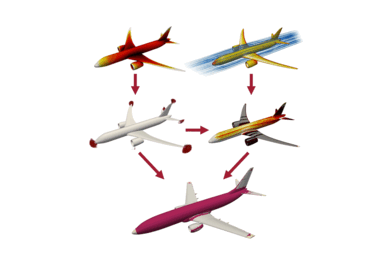Celebrating its 35th year, MIT International Science and Technology Initiatives (MISTI) continues to ignite new international collaborations between MIT faculty and researchers abroad through the Global Seed Funds (GSF) program. MISTI GSF enables participating teams — comprised of faculty and students — to connect with their international peers with the aim of developing and launching joint projects. Many of these collaborations have led to published papers, subsequent grants, and lasting connections between individuals, and between MIT and other leading research institutions.
This year MISTI GSF received 253 applications and awarded over $2 million to 110 faculty from 23 departments across the Institute. “Through these collaborations,” explains Suzanne Berger, professor of political science and former director of MISTI, “faculty gain an access to knowledge they don’t have within their own labs.” Launched under Berger’s leadership in 2008, the grants program has tripled in size, offering more than 25 location- or institute-specific funds in the 2017-2018 grant cycle.
Additionally, the MIT Global Partnerships Fund (GPF), administered by MISTI, was launched this year through the Office of the Associate Provost for International Activities. Created in response to MIT’s Global Strategy to cultivate region-specific faculty and Institute-level collaborations in targeted regions, the GPF will allow MIT to connect and engage with regions and areas where we have strategically decided to deepen our engagement; develop stronger collaborations with peer institutions; and explore opportunities for collaboration in education and innovation / entrepreneurship as well as research. In its first year, the MIT GPF focused on projects in Africa and Mexico. Eight faculty projects were awarded, representing eight departments and four MIT schools: Architecture and Planning; Engineering; Humanities, Arts, and Social Sciences; and Science
MISTI also administers the MIT-Imperial College London Seed Fund, which was created through a partnership between the MIT Office of the Associate Provost for International Activities and Imperial College London. Since 2015, 11 MIT-Imperial College London collaborations have received funding totaling $177,000.
Over the last decade MISTI GSF has awarded over $15.7 million to 735 faculty projects across MIT. From exploring the properties of the Higgs boson at CERN in Switzerland to leading policy reforms to change the future of hydropower in Chile, GSF faculty are working with peers to better understand — and help solve — today’s pressing global challenges.
The next MISTI GSF call for proposals will be announced in May with a deadline in early fall. For more details about the GSF program, please visit the MISTI site.
Originally launched as the MIT-Japan Program in 1983, MISTI has expanded to include opportunities for students and faculty in more than 20 countries. This past year over 1,200 MISTI students interned, researched, and taught aboard. To prepare for their experiences abroad, MISTI students complete coursework in the language and culture of their host country and attend MISTI-prepared, location-specific training sessions.
MISTI is a part of the Center for International Studies within the School of Humanities, Arts, and Social Sciences (SHASS).






